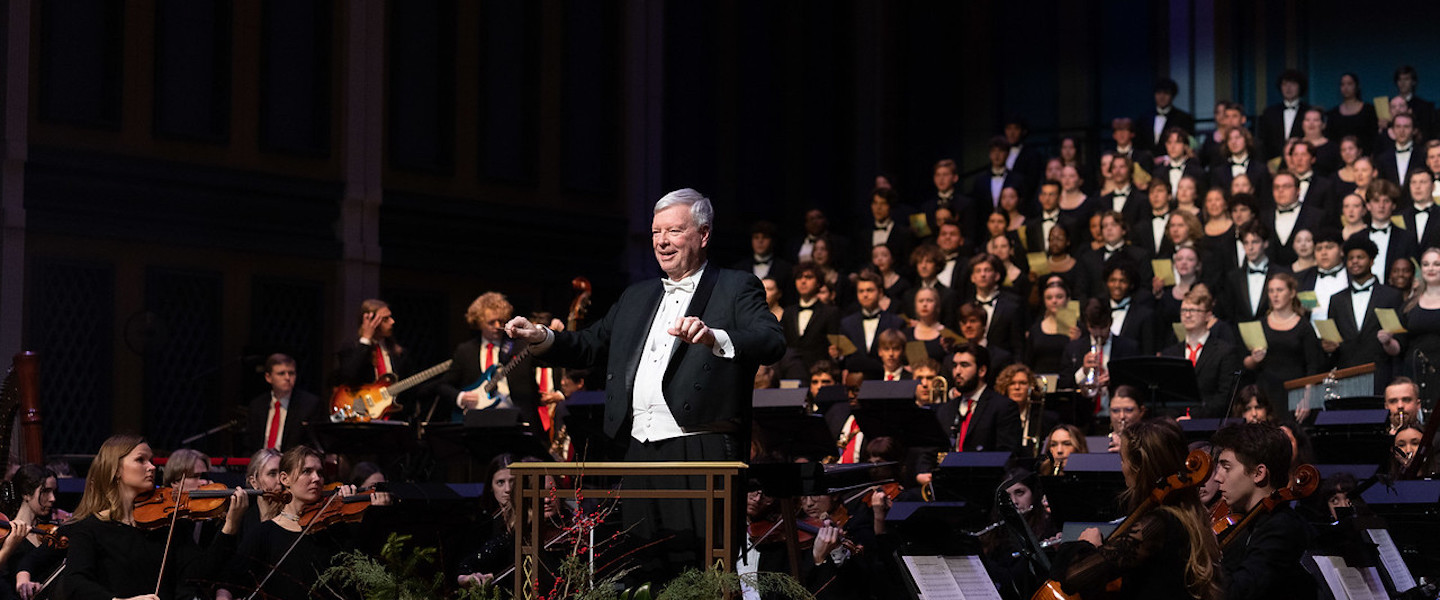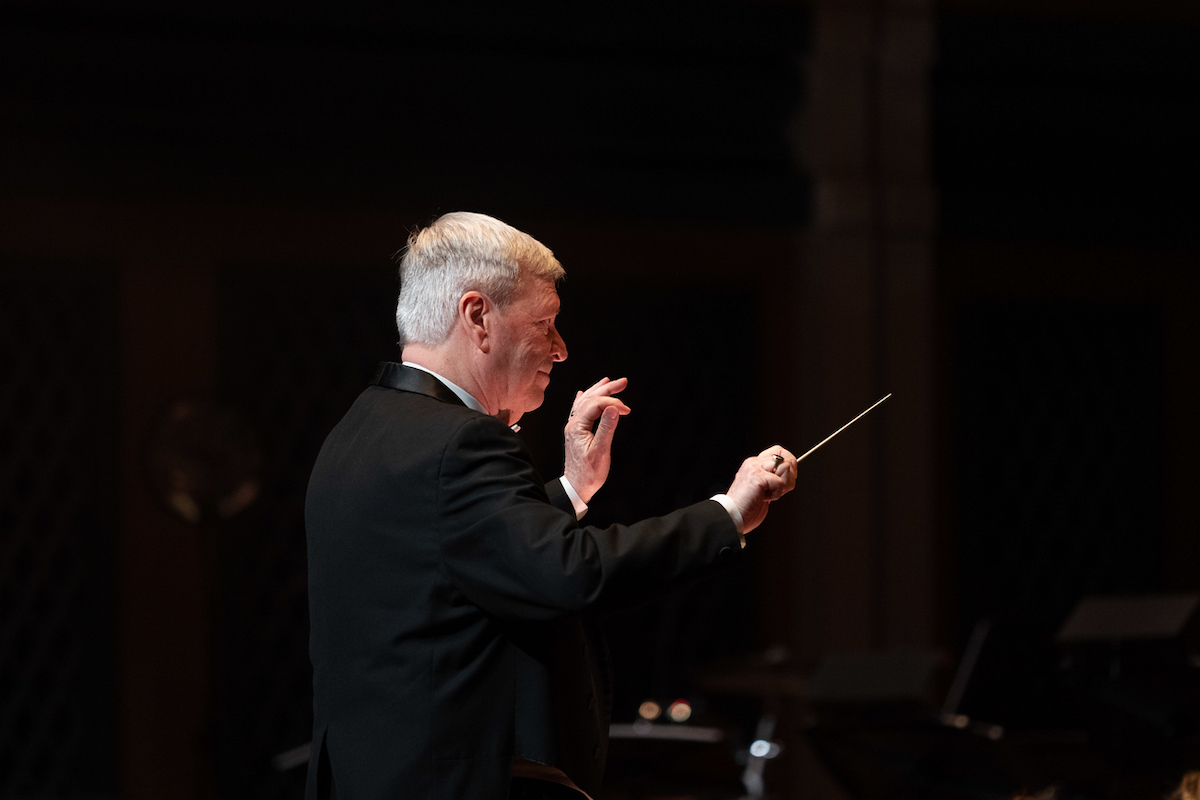 As Director of Orchestras Dr. Robert Gregg prepares to retire from the institution he's called home for four decades, it is easy to view his journey as a personal story of dedication and passion. However, his legacy also serves as an example of the impact one individual can have on the trajectory of a program and on students' overall college experience.
As Director of Orchestras Dr. Robert Gregg prepares to retire from the institution he's called home for four decades, it is easy to view his journey as a personal story of dedication and passion. However, his legacy also serves as an example of the impact one individual can have on the trajectory of a program and on students' overall college experience.
Gregg came to Belmont in 1984, exactly 40 years ago. When he saw the job listing mention that the position would be “starting an orchestra program from scratch,” he was eager to take on the challenge. Thankfully, his prior job as the assistant conductor of the University of North Texas Orchestra gave him the experience and mentorship he needed to build Belmont’s program into what it is today.
He laughed recalling his interview for the job, which included a conducting demonstration of the Hillsboro High School orchestra, since there was no orchestra to speak of yet at Belmont.
“They weren’t very good, but it gave me an idea of what I’d be working with as I got started,” Gregg reminisced.
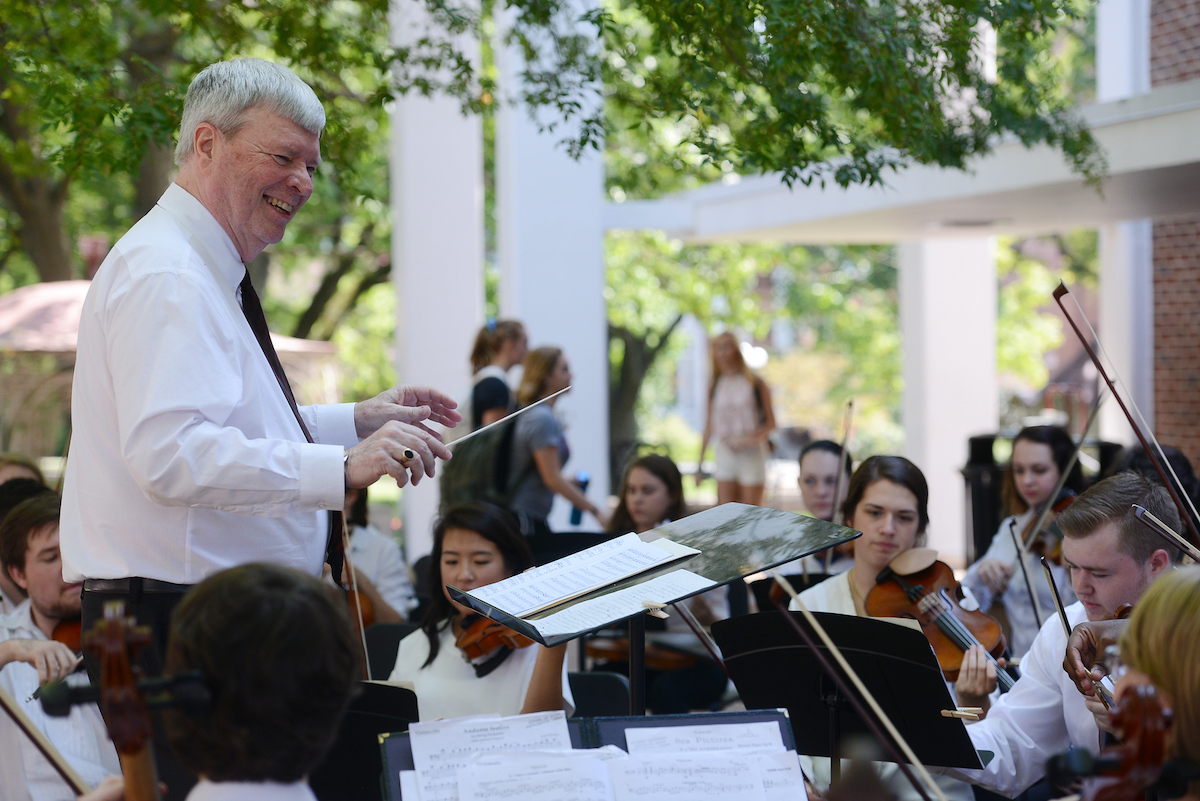 Gregg did indeed build Belmont’s program from the ground up, though the early years were challenging. He started with a few wind players, a small winds section and seven violin players — three of which didn’t know how to read music. Yet, his perseverance and vision laid the foundation for what would become a thriving program, adding to Belmont’s overall reputation for musical excellence.
Gregg did indeed build Belmont’s program from the ground up, though the early years were challenging. He started with a few wind players, a small winds section and seven violin players — three of which didn’t know how to read music. Yet, his perseverance and vision laid the foundation for what would become a thriving program, adding to Belmont’s overall reputation for musical excellence.
“One of the main reasons we had such a good response to build the program was that we have a commercial music degree, and we were one of the only schools to offer that back in the 80s,” Gregg explained. “You could find many schools with jazz studies or this or that, but we were one of the few to offer a degree that encompassed all aspects of popular music — rock, country, bluegrass, jazz, everything. Because of that, we began to get a lot of jazz or fiddle players who were also good classical players, and we were finally able to hold auditions to find really good groups of players.”
By the 90s, the program had taken off, growing to a full-size, 65–70-piece program. With its newfound notoriety and location in Nashville, the program recruited professional musicians in town to serve as adjunct professors, which also helped grow the program. Other schools around the country began offering commercial music degrees around that time.
“I believe them to be modeled after ours,” Gregg said proudly.
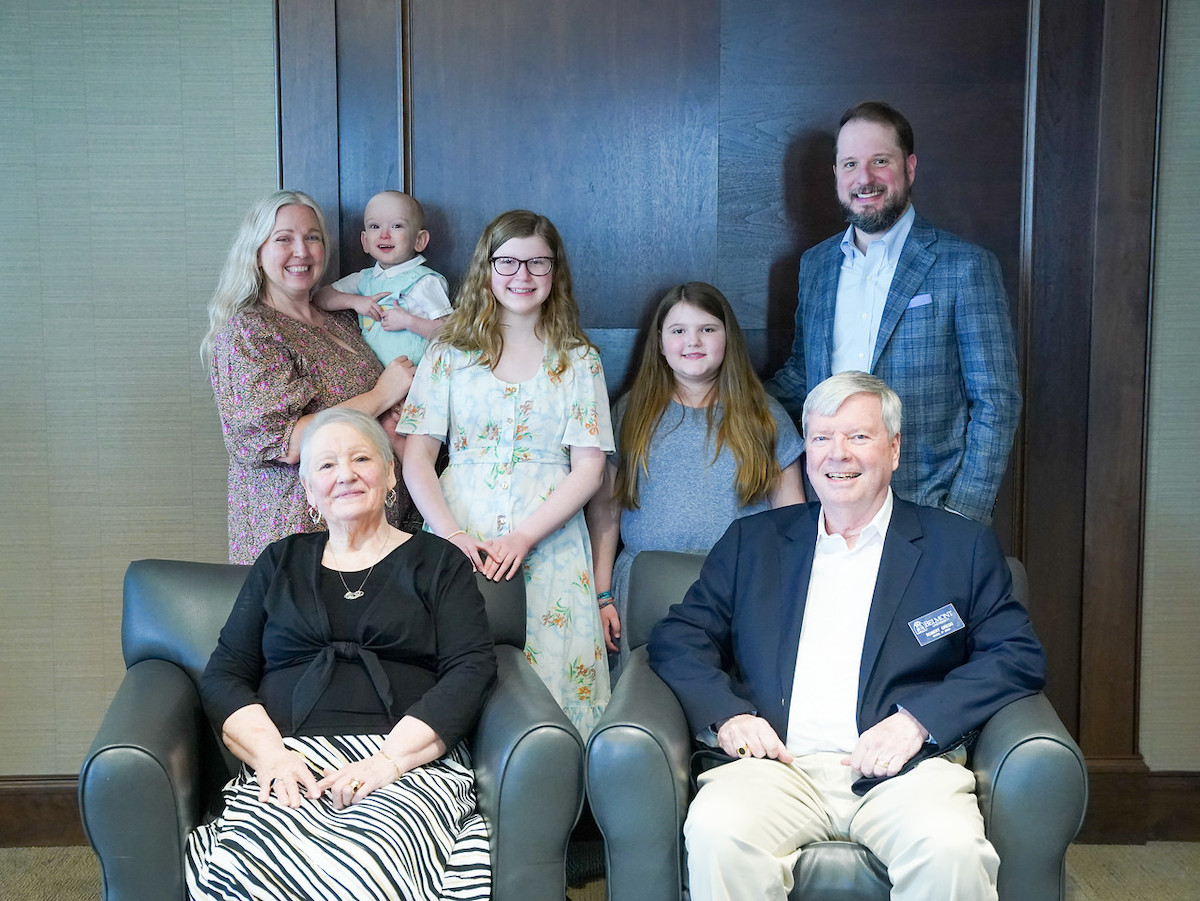
Today, Belmont has an 85-member orchestra, including 60 string players. Twelve years ago, Gregg also started a string chamber orchestra because there were more violins than could fit in the symphony. Over the years, he has found joy in watching that group be an outlet for non-music majors who still love to play their instruments.
One special memory Gregg shared is that 15 years into his time at Belmont, he wanted the orchestra to perform “Pines of Rome” by Ottorino Respighi, but he wasn’t sure the group was ready. However, he decided to go for it anyway. Since then, the orchestra has proved they can perform any piece.
Twenty-five years ago, 40-50 alumni came back to campus for a special reunion where they joined in with the 150-piece orchestra to play “Pines of Rome.”
And again, on Feb. 17, the orchestra played the work in the Fisher Center for the Performing Arts as part of the College Orchestra Directors Association National Conference, hosted this year at Belmont, which included a retirement reception in Gregg’s honor.
“I guess you can call that my swan song,” he smiled.
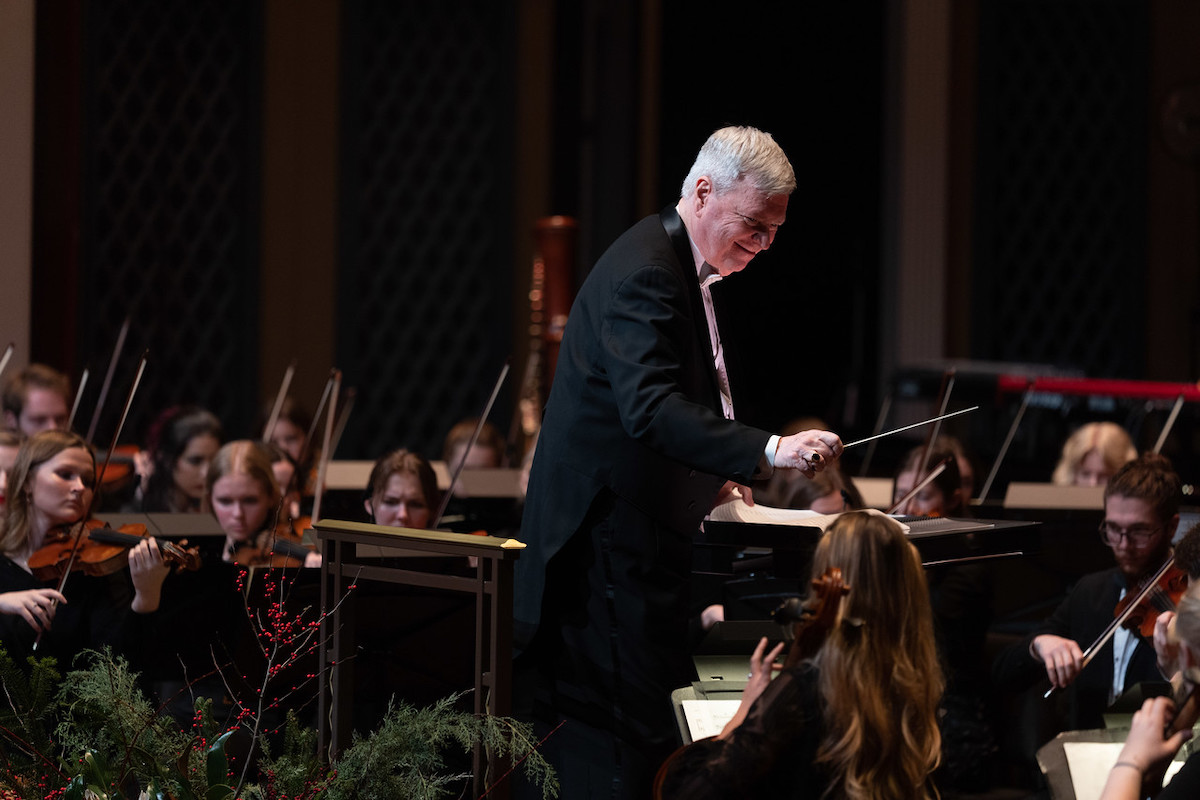
Gregg has worked tirelessly to make sure every student that comes through the program is ready to go out into the professional world of music.
“We work really hard in rehearsals and talk about the importance of professionalism. And we have such good students at Belmont that if they realize we didn’t have a good rehearsal one day, they’ll be right on it the next day,” he said.
But, Gregg's impact extends far beyond the rehearsal room. “They all know my door is open anytime they want to come in and talk — whether it’s about music or just what’s going on in their lives,” he added.
Alumna Ashley Crawford, co-founder of the Nashville African American Wind Symphony, attests to his influence.
“Dr. Gregg is an instrumental figure in my evolution as a flutist and musician. He never backed down from challenging or holding me accountable for my growth and presence as a soloist,” she said. “I'm eternally grateful for him holding space for me when I wanted just to sit and chat, for all the valuable advice that still serves me today and for being an overall beautiful human being to anyone who encounters him. He is a musical guiding light, and having played under his baton has been transformative.”
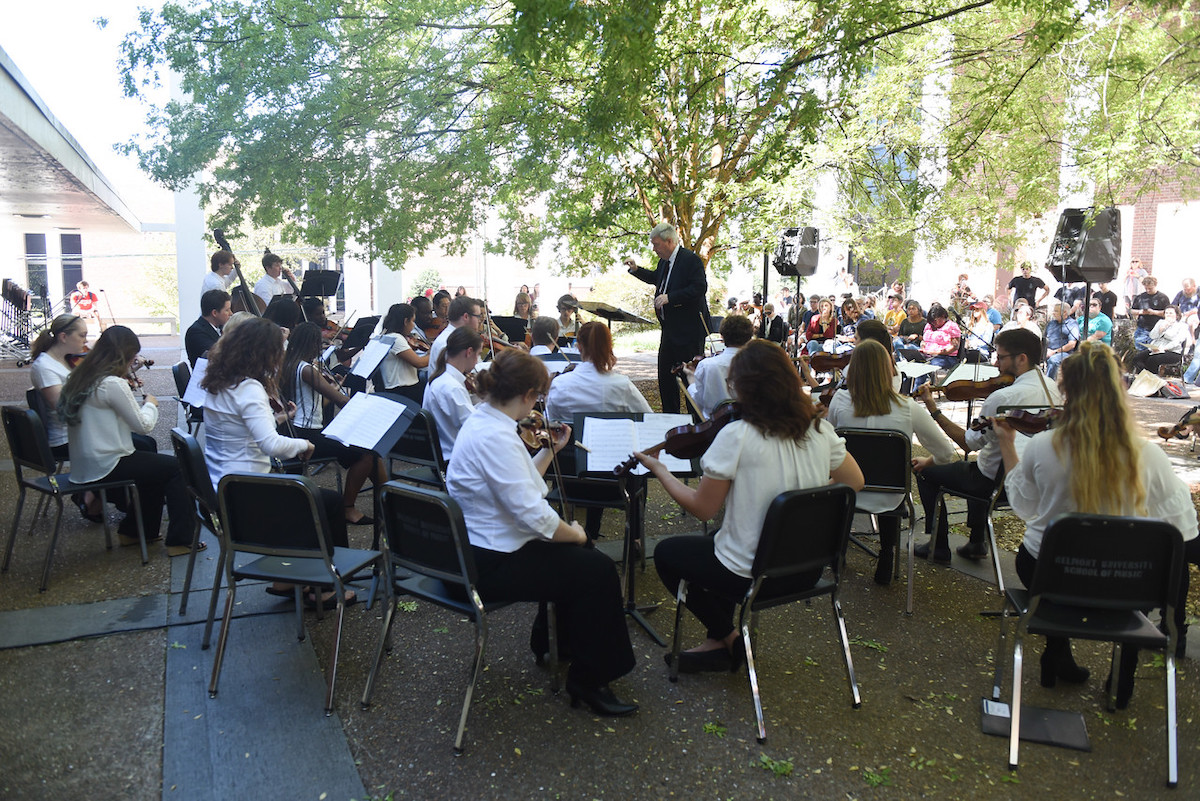 Likewise, music education and classical music alumnus Elias Salazar (‘13), now director of choral and orchestral music and director of the School of Music at Ensworth School, said he owes much to Gregg's guidance and encouragement at the beginning stages of his career as a conductor.
Likewise, music education and classical music alumnus Elias Salazar (‘13), now director of choral and orchestral music and director of the School of Music at Ensworth School, said he owes much to Gregg's guidance and encouragement at the beginning stages of his career as a conductor.
“He gave me my first opportunity to wave my arms in front of an orchestra, and that is an experience I will never forget and could never repay,” Salazar explained. “I am forever grateful for the many conducting lessons we enjoyed, digging into masterworks and geeking out about the nitty gritty work that occurs before one ever steps foot on a podium. His leadership and vision at Belmont and in the collegiate orchestra world at large over the past 40 years is worthy of the highest recognition. I know I'm not the only alum who can confidently say I wouldn't be the musician I am today without Dr. Robert Gregg's influence on my life.”
As he looks toward retirement, Gregg plans to continue guest conducting and serving as a judge for the Heritage Music Festival, all while sneaking in extra time with his two sons (both Belmont alumni) and seven grandchildren.
But he has mixed feelings about being away from his beloved students and colleagues. He has seen so much growth in the 40 years he has been at Belmont, from the footprint of campus and the number of students to the individual growth he has seen in each of his players, which he credits to Belmont’s outstanding professors.
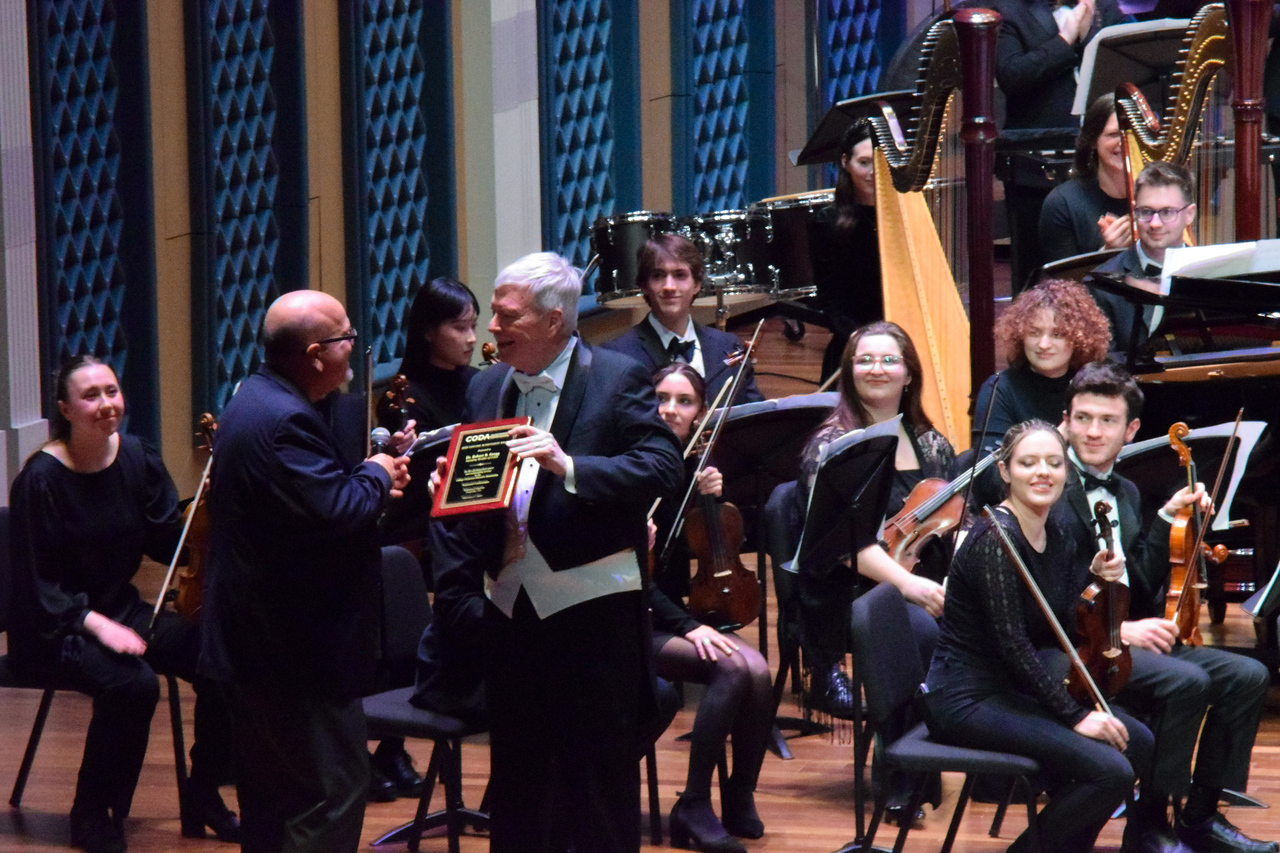 “For years, I have loved watching students come away from rehearsals excited. When we leave, I see them talking about an aspect of the music or what we are doing, and that just warms my heart,” Gregg reflected. “I get emails all the time from former students who want to tell me how much they cherished their time in orchestra, and that means the world to me.”
“For years, I have loved watching students come away from rehearsals excited. When we leave, I see them talking about an aspect of the music or what we are doing, and that just warms my heart,” Gregg reflected. “I get emails all the time from former students who want to tell me how much they cherished their time in orchestra, and that means the world to me.”
As the curtain falls on his illustrious career, Dr. Gregg leaves Belmont with a symphony of memories and a legacy that will continue to echo through the performance halls of the University for years to come.

